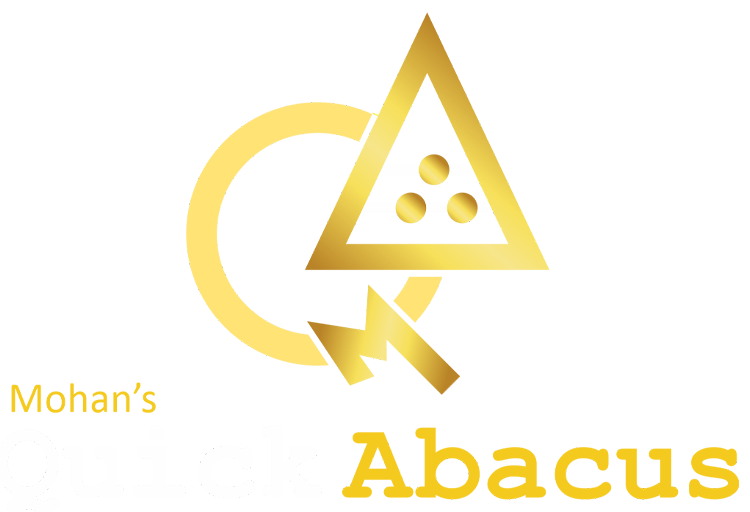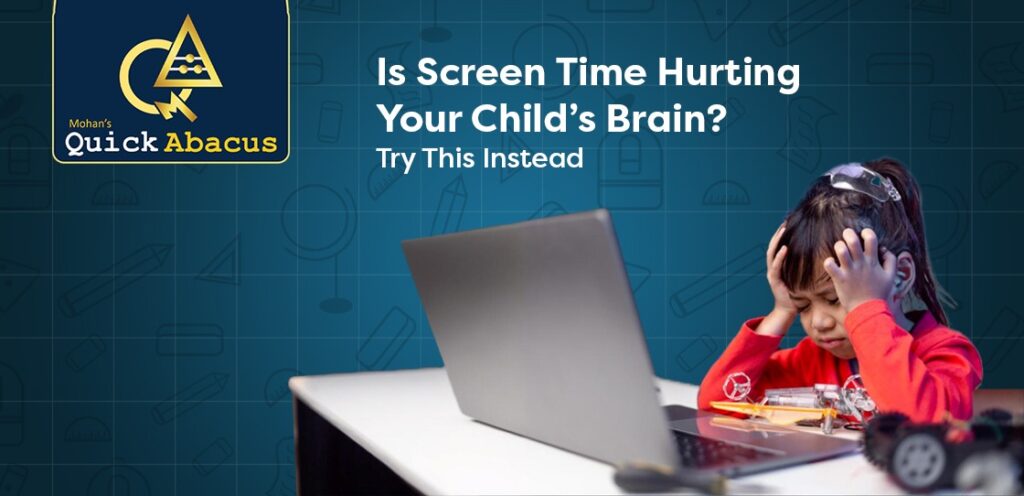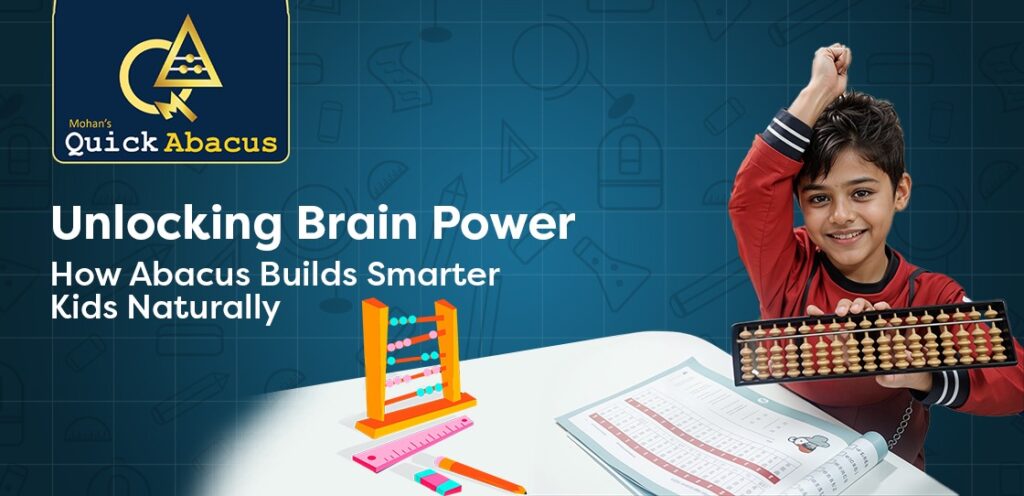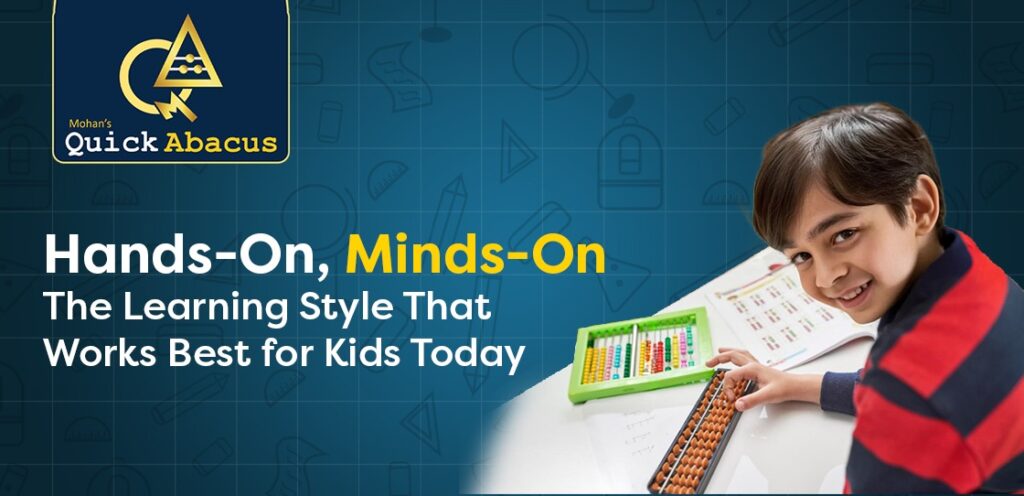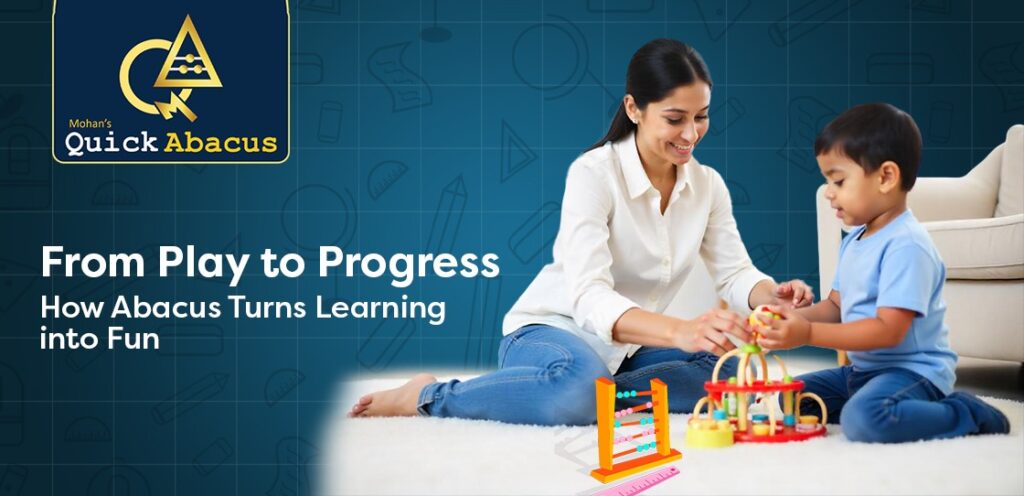In today’s tech-driven world, screens are everywhere—from classrooms to living rooms. While digital devices offer convenience and entertainment, excessive screen time is silently impacting children’s brain development.
If you’ve ever wondered whether your child is spending too much time in front of a screen, the answer may be yes—and it might be affecting more than just their eyesight.
At Quick Abacus, we offer a healthy, brain-boosting alternative that doesn’t just replace screen time—it transforms it into meaningful mental stimulation.
🧠 The Real Impact of Too Much Screen Time on Kids
While gadgets have educational value, research shows that too much screen exposure can hinder cognitive growth. Here’s how it may be affecting your child:
- 🚫 Reduced attention span
- ⚠️ Delayed language and social development
- ❌ Weaker memory and slower processing speed
- 😵💫 Increased anxiety and emotional instability
- 💤 Poor sleep quality due to blue light exposure
Overexposure to screens has also been linked to falling academic performance, especially in core subjects like mathematics, which require sustained focus and reasoning.
✅ What’s the Alternative? Hands-On, Brain-Based Learning
So, what can you do instead of constantly saying “no” to screens?
✅ You can say “yes” to abacus learning—a time-tested technique that strengthens the brain through active participation, visualization, and movement.
At Quick Abacus, we use this ancient yet effective method to help kids:
- 🔍 Boost focus and concentration
- 🧠 Sharpen memory and mental processing speed
- ➕ Improve mathematical accuracy and comprehension
- 🎨 Engage both the logical (left) and creative (right) sides of the brain
Unlike screens that provide passive stimulation, abacus learning is interactive, multisensory, and deeply engaging.
🔢 Why Abacus Learning Beats Screen Time
Here’s a side-by-side comparison of what makes abacus learning a smarter choice:
Screen Time | Abacus Learning |
Passive watching | Active thinking |
One-sided interaction | Multisensory engagement |
Leads to distraction | Builds laser-sharp focus |
Can cause mental fatigue | Boosts brain stamina |
Entertainment only | Delivers real academic growth |
With the abacus, children begin to visualize numbers as moving beads, which improves mental arithmetic and problem-solving skills.
➡️ Explore More: The Science Behind Abacus – How It Trains the Left and Right Brain
🎯 Results That Go Beyond Math
Abacus learning isn’t just about numbers. It unlocks a wide range of academic and personal benefits that ripple across all subjects:
- 🧠 Stronger attention span
- 💬 Improved verbal communication
- 🧩 Faster decision-making skills
- 🎓 Higher grades and greater self-confidence
➡️ Related Blog: How Abacus Enhances Memory, Focus, and Cognitive Speed in Kids
👨👩👧👦 Real Learning > Real Screens
Rather than just limiting screen time, redirect your child’s energy toward something that stimulates their brain and builds real-world skills.
At Quick Abacus, we offer a fun, effective, and scientifically backed way to balance screen time with productive brain time—and the results speak for themselves.
🎁 Book a Free Demo Session
Let your child discover the joy of learning math through visualization, movement, and imagination—all while reducing dependence on screens.
👉 We will help you – Register with us today!
✨ See why hundreds of parents choose Quick Abacus to turn screen-heavy habits into lifelong brainpower.
